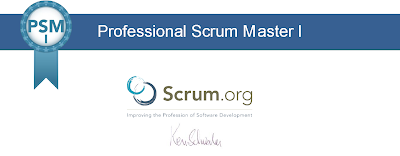Cool presentation on brainstorming: The Silence of Agile
To innovate and build greate teams, your technique matters!
1. Generate in silence
2. Process out loud
Sunday, December 9, 2012
Friday, October 12, 2012
Simulation hypothesis
Bostrom contends that at least one of the following statements is overwhelmingly likely to be true:
- No civilization will reach a level of technological maturity capable of producing simulated realities.
- No civilization reaching aforementioned technological status will produce a significant number of simulated realities, for any of a number of reasons, such as diversion of computational processing power for other tasks, ethical considerations of holding entities captive in simulated realities, etc.
- Any entities with our general set of experiences are almost certainly living in a simulation.
Friday, July 20, 2012
Entity Framework Now Open Source
Microsoft has announced that they are making the Entity Framework (EF) source code available under the Apache 2.0 license.
Along with this announcement, the EF team laid out the plans for their most important additions to EF6. Those include:
- Support for stored procedures and functions in Code First
- Task-based Async (using .NET 4.5)
- Custom-written conventions in Code First
Tuesday, July 10, 2012
Power
Every time a piece of software is installed someone gains and someone loses power. We need the cooperation of the losers, and we are in the middle.
Show stopper
What happens if you write the spec so someone loses. That is why the spec ends up wishy washy. At that point we blame the writer for being a bad writer.
We can't build wishy washy code so programmers have to deal with conflict resolution.
Vague specs identify conflicts.
http://c2.com/cgi/wiki?TomsTalkAtXpImmersionThree
Every time a piece of software is installed someone gains and someone loses power. We need the cooperation of the losers, and we are in the middle.
Show stopper
What happens if you write the spec so someone loses. That is why the spec ends up wishy washy. At that point we blame the writer for being a bad writer.
We can't build wishy washy code so programmers have to deal with conflict resolution.
Vague specs identify conflicts.
http://c2.com/cgi/wiki?TomsTalkAtXpImmersionThree
Monday, July 2, 2012
Monitoring Driven Development and Performance Driven Development solve different problems with the same approach - introduction of a metrics (KPI) inspection tool as a part of DoD from the very beginning of the development.
Friday, March 2, 2012
InfoQ: Technical Debt Is Now Costing Us $3.61 Per Line Of Code
InfoQ: Technical Debt Is Now Costing Us $3.61 Per Line Of Code:
CAST now estimates technical debt to cost companies $3.61 per line of code.
35% of those items considered to be technical debt were severe enough to adversely affect support of the system studied, potentially resulting in security, performance or uptime issues.
Outsourced and in-house developed applications didn’t show any difference in structure quality. The same was true for onshore and offshore applications.
Java EE applications were the most prevalent among those studied and received significantly lower performance scores as well as carrying greater technical debt than other languages.
Established development methods such as agile and waterfall scored significantly better in structural quality than custom methods, while waterfall scored the highest in transferability and changeability.
COBOL applications scored the highest in security, while .NET applications received the lowest security scores.
Modularity of systems may contribute to lower quality and reduced performance.
Government systems tend to be the lowest in maintainability.
The more frequently the code is released the higher the technical debt.
Subscribe to:
Posts (Atom)
